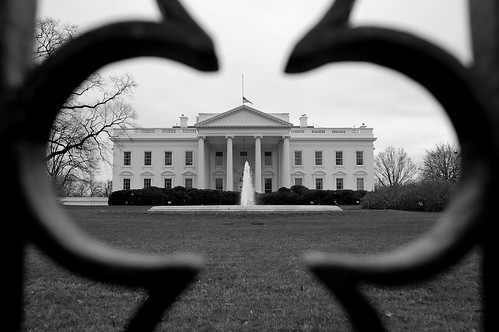
One of my all-time favourite classes at university was “Prophets and Millenarian Movements in World History.” Millenarian movements are those that believe in the literal and imminent end of the world. All religions begin with a millenarial focus before usually becoming increasingly institutionalized and non-specific when it comes to the end times as they go along.
The entire subject matter was extraordinary, full of stories of charismatic leaders and people at their most raw and desperate and their most devout and hopeful. What fascinated me most though was the behavior of adherents when the predicted end of the world doesn’t come to pass. To act in the literal belief of the imminent end of the world is a true test of faith. If you really, truly, belief the world is ending you behave differently. You quit your job, say goodbye to your loved ones. Or you rise up in rebellion or, in some cases, commit suicide in the belief that a new, eternal, life awaits you on the other side. Believers put themselves out there and, if not enclosed within a believer community, are likely suffer a great deal of ridicule, condemnation and repression. And then the big day arrives and…. Nothing happens. The world is still here and so are you. What do you do next?
When faced with this head-on collision of faith and reality, who do you think prevails?
The answer, often, is faith. Believers are more likely to create an elaborate justifications for why the world didn’t end, to find a small mistake in their calculations or blame the behavior of non-believers, than to accept a flaw in their original thinking.
One of the most interesting examples of this was the Millerites in the 1830’s in the US:
In 1831, a Baptist convert, William Miller… began to preach that the Second Advent of Jesus would occur somewhere between March 1843 and March 1844, based on his interpretation of Daniel 8:14. A following gathered around Miller that included many from the Baptist, Methodist, Presbyterian and Christian Connection churches. In the summer of 1844, some of Miller's followers promoted the date of October 22. They linked the cleansing of the sanctuary of Daniel 8:14 with the Jewish Day of Atonement, believed to be October 22 that year. By 1844, over 100,000 people were anticipating what Miller had called the "Blessed Hope". On October 22 many of the believers were up late into the night watching, waiting for Christ to return and found themselves bitterly disappointed when both sunset and midnight passed with their expectations unfulfilled. This event later became known as the Great Disappointment.
-Wikipedia
While many of those who had gathered in anticipation of the end of the world drifted back to their former lives a significant portion found this impossible to accept and began developing competing explanations for what had or hadn’t happened and why. The Seventh-Day Adventists Church is based on one such explanation. In their telling the end of the world had arrived on the date predicted, but in another, second, world, and which Jesus had to cleanse first before he could come to our world. The Church of Jesus Christ of Latter-Day Saints (the Mormons) and the Churches of Christ also emerged from the millenarian fervor of this time.
More recently thousands of devout Christians, supported by a $100 million advertising campaign, insisted that the world would end on May 21 this year, convinced by the calculations of their prophet Harold Camping.
Some believers simply have too much at stake emotionally and psychologically to concede that they were wrong.
I was reminded about all of this today as I read the responses to Barack Obama’s resounding election victory over Mitt Romney.
Very few Republicans are prepared to see their loss, and the swing towards the Democrats in the Senate and House (where the Democrats received the majority of the votes but still have a 35-seat minority due to gerrymandering by Republic state legislators), as indicative of any flaws in their vision for America, or of the fact that most America’s don’t share their goals.
Instead the result is blamed on superstorm Sandy, or the superior Obama get-out-the-vote efforts or their use of data, or because the media is biased or suppressed information that would have helped Romney, or due to the failures of Romney’s vaunted “project ORCA”, or on the bipartisan spirit extended to Obama by Republic Governor Chris Christie in the campaign’s final days.
Rarely are the policies and beliefs the party ran on examined and when they are it’s more often than not claimed that Romney was not conservative enough, rather than to the right of the majority of the American people.

The reality of the situation is that the demographics of America are changing and the ground is shifting rapidly on social issues as gay marriage and ending marijuana prohibition. Where once these causes served to mobilise Republic constituencies they now mobilise Democrat supporters.
A failure to update your thinking when reality intrudes is a clear sign of ideological rigidity and close-mindedness. As with the case of believers in millenarian cults Republican activists have too much committed to the narrative they hold to relax it now. When your ideological commitment is so strong facts themselves become secondary to the story you already hold, immediately suspect if they contradict it in any way, useful only when they confirm existing feelings.
The best example of this comes from the far-right Heritage Action, the political action committee of the Heritage Foundation. It’s even got doomsday music and vibes.
[youtube=http://www.youtube.com/watch?feature=player_embedded&v=p7D0d7ztLY0]
Hard to imagine something like that playing well in Australian politics. But then, we don’t have the millenarian tradition America does.



 10 different teams have represented the NFC in the Superbowl over the last ten years. It has been 7 years since a team repeated as Superbowl champion. This competitive parity is loved by fans and the NFL has been prospering as a result, becoming America’s undisputed number 1 sport. This most recent Superbowl became the most-watched show in US television history, beating out last year’s Superbowl to set a new record of 111 million viewers.
10 different teams have represented the NFC in the Superbowl over the last ten years. It has been 7 years since a team repeated as Superbowl champion. This competitive parity is loved by fans and the NFL has been prospering as a result, becoming America’s undisputed number 1 sport. This most recent Superbowl became the most-watched show in US television history, beating out last year’s Superbowl to set a new record of 111 million viewers. I was away camping in the Big Basin Redwood State Park over the weekend and was shocked when I returned to civilization to find out about the
I was away camping in the Big Basin Redwood State Park over the weekend and was shocked when I returned to civilization to find out about the 
 So this Saturday is
So this Saturday is 

